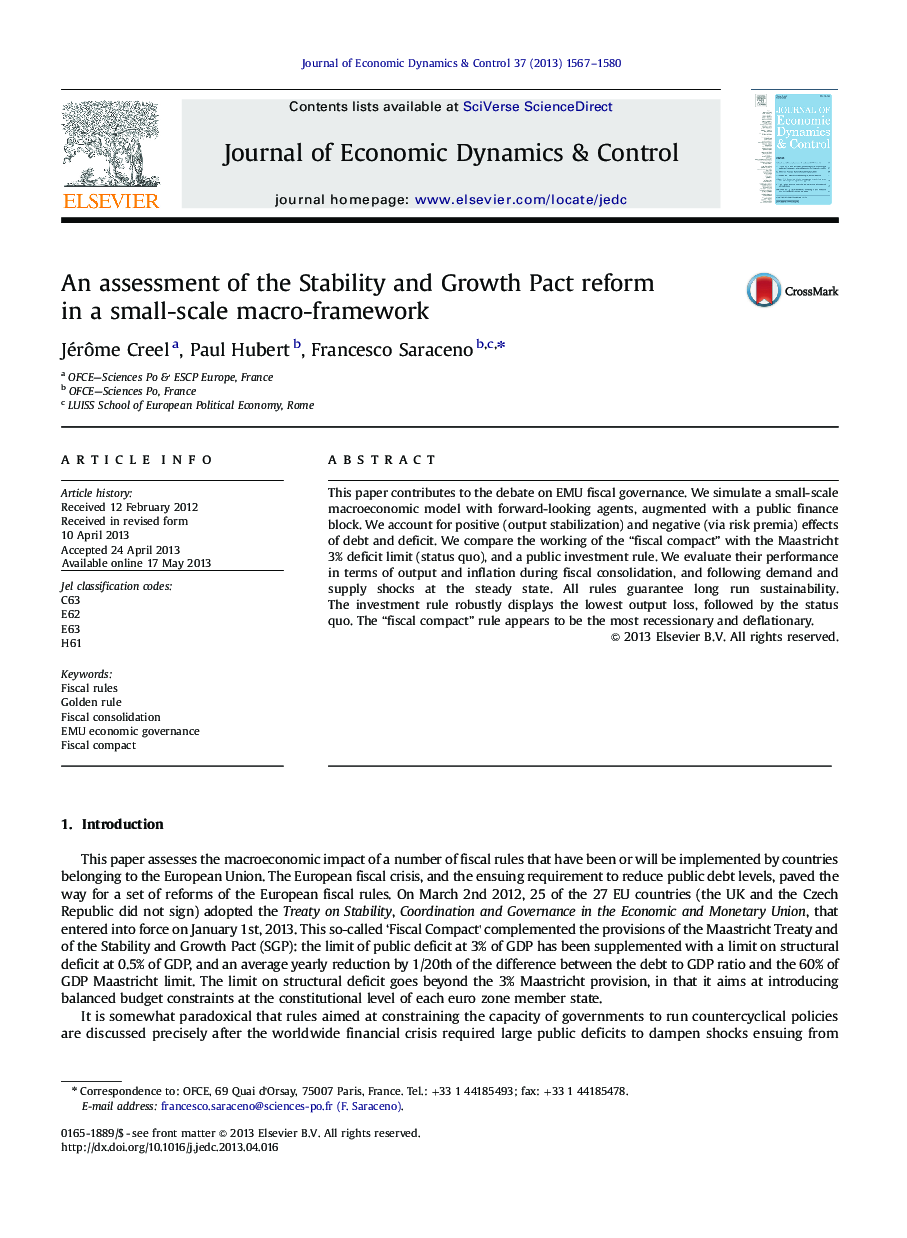| Article ID | Journal | Published Year | Pages | File Type |
|---|---|---|---|---|
| 5098798 | Journal of Economic Dynamics and Control | 2013 | 14 Pages |
Abstract
This paper contributes to the debate on EMU fiscal governance. We simulate a small-scale macroeconomic model with forward-looking agents, augmented with a public finance block. We account for positive (output stabilization) and negative (via risk premia) effects of debt and deficit. We compare the working of the “fiscal compact” with the Maastricht 3% deficit limit (status quo), and a public investment rule. We evaluate their performance in terms of output and inflation during fiscal consolidation, and following demand and supply shocks at the steady state. All rules guarantee long run sustainability. The investment rule robustly displays the lowest output loss, followed by the status quo. The “fiscal compact” rule appears to be the most recessionary and deflationary.
Related Topics
Physical Sciences and Engineering
Mathematics
Control and Optimization
Authors
Jérôme Creel, Paul Hubert, Francesco Saraceno,
